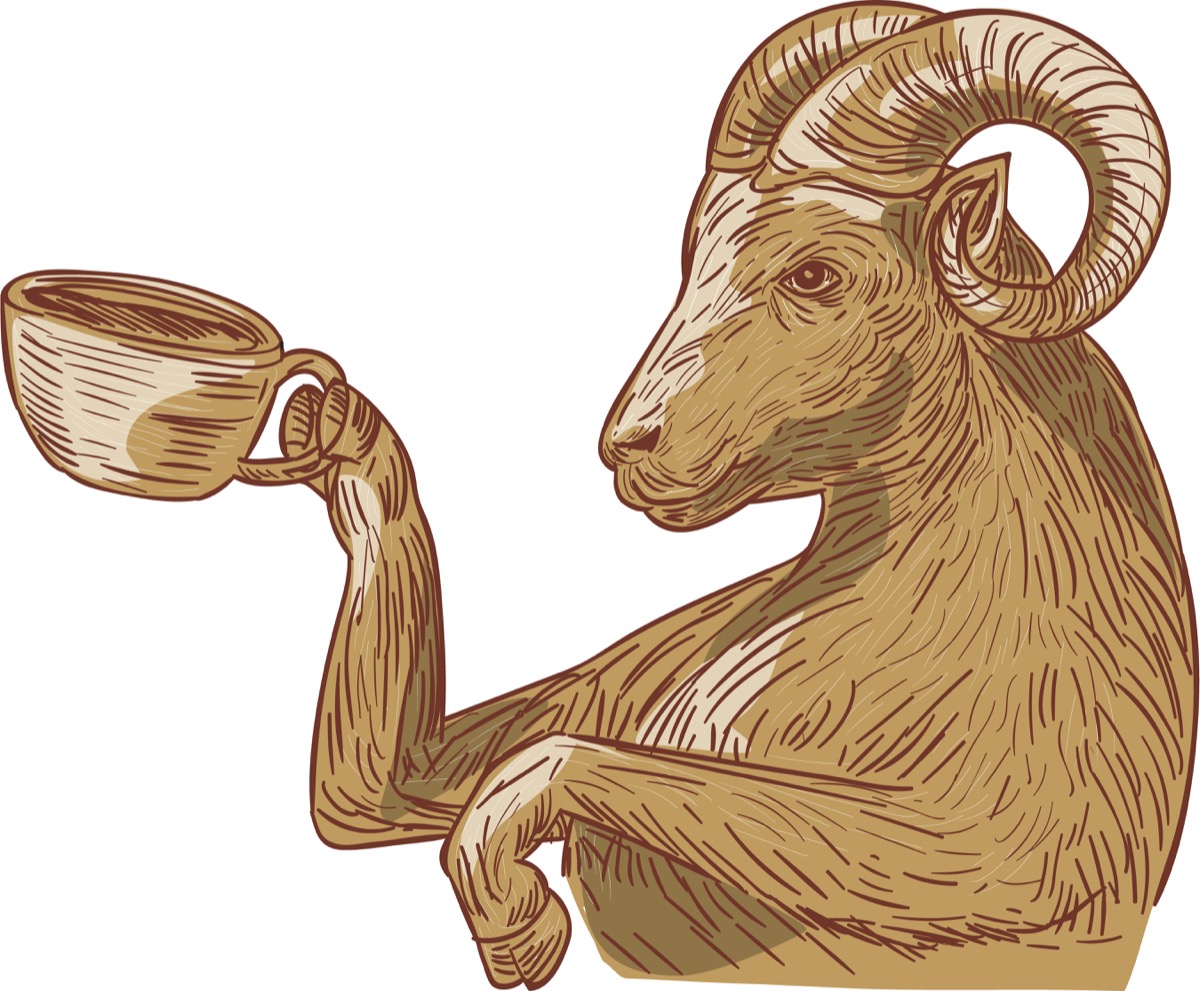Coffee is the undisputed king of the morning routine, the cornerstone of waking up and getting into gear. But do we really understand how coffee affects us? Coffee is a beloved beverage all around the world, from Norway to Japan. The mystery, though, is where coffee came from and why we love it so much. Scientists have sought to find the answer to coffee’s deliciousness and popularity, but I don’t need to tell you how awesome coffee is or use science to convince you.
Grab a cup o’ joe—here’s some truly amazing facts about coffee to delight you.
Goats Discovered Coffee

Coffee was originally discovered in Africa, when Ethiopian shepherds came across a group of goats doing a dance—which was likely due to the caffeine in their system. Intrigued, the Ethiopians decided to investigate. Initially, the coffee bean was sampled in its rawest form, but the strong flavor of unroasted beans didn’t dissuade the Ethiopians. African tribes have used coffee has food, not drink, for many years. Coffee berries are often mixed with a form of fat to form an energy ball that helps keep them alert during hunts and dancing rituals.
Tap below to continue!
More from Things Health
-
13 Facts About The Flu Shot Everyone Should Know
There are a myriad of misconceptions when it comes to the flu vaccine. One of the most widely spread misconception is that you are given…
-
6 Things to Know About a Low FODMAP Diet
If you or someone you know suffers from Irritable Bowel Syndrome (IBS), you are likely familiar with the digestion problems that come with it including…
-
About Leukemia
Leukemia is generally known as blood cancer, where as if considered in its real terms leukemia is a cancer of the white blood cells as…
-
8 Celebrities Who Have Spoken Out About Managing Diabetes
Diabetes is a disease that affects millions of people, and celebrities are no less likely to have it than the average person. Diabetes has had…
-
8 Busted Myths About Diabetes
Everyone has heard of diabetes, but many people don’t know much about the condition. There are a lot of myths circulating about diabetes, which can…






